Rallying With Retreaded Tyres
- By Gaurav Nandi
- March 03, 2025
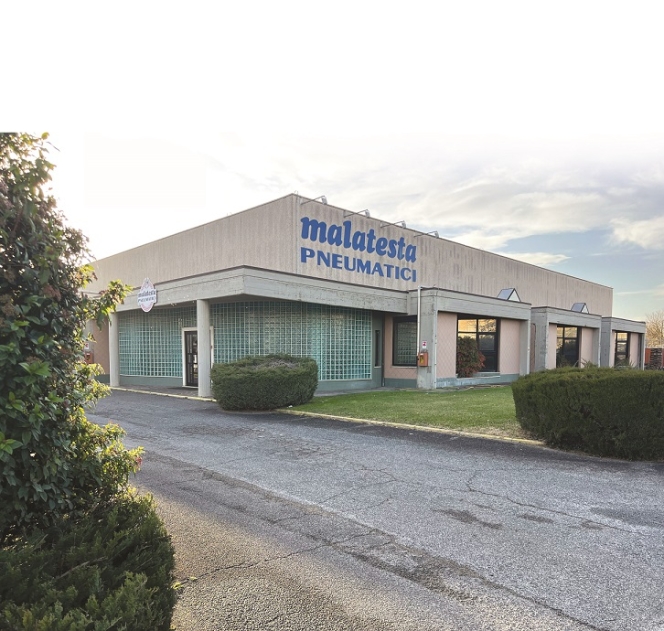
Retreaded tyres have evolved to meet modern demands, blending cost-efficiency with environmental responsibility. Since tyres’ operational costs are the second highest expense after fuel consumption, retreading provides a smart solution for transporters and fleet owners. Today, its reach extends beyond commercial vehicles to motorsports, exemplified by Malatesta Tyres’ triumph in the Italian Rallycross Championship. This milestone highlights the potential of retreaded tyres in high-performance scenarios, redefining perceptions and showcasing its critical role in the circular economy.
The use of retreaded tyres has penetrated different geographies over the centuries. Origins of companies involved in the trade even dates back to the 1950s just after the end of World War II. Moreover, as tyres take the second spot for the most expensive ware in a vehicle after fuel, retreading has been a boon in disguise for transporters and fleet owners. Adding to the virtues of this old trade is its quality of ‘reuse’ that boots the quotient on sustainability. However, as the world grows more and more accustomed and informed of retreading, especially with developing countries welcoming it with arms open, the trade is taking a step into the future. While most people are aware that tyre retreading mostly happens on commercial vehicles, has anyone heard that the world of motorsports is also subjected to such wares? Probably not!
HERE’S AN EYE OPENER!
Italian family-owned Malatesta Tyres forayed into the motorsports category in 2023 when Brazilian-born driver Lucas Scabbia took on the Italian Rallycross Championship in the STC Plus 2000 Class. The racer donned Malatesta’s retreading tyres on his Peugeot 207 1.6 RS and eventually went on to be crowned the Italian Champion after the season in the category.
While the feat clearly resembles the power of tyre retreading and bears the mark of quality as motorsports require very heavy-duty tyres, it also quells the myths associated with retreading and its potential applications within different tyres categories.
RALLY TYRES
Following the marvellous job, a peek into the world of Malatesta Tyres revealed the nuances to making retreaded tyres for the motorsport events and the company’s plans to further explore the rugged terrains with its tyres.
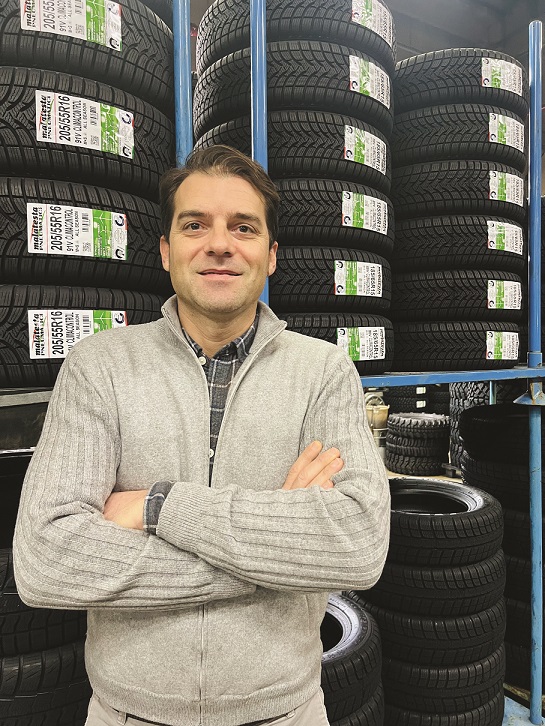 Speaking exclusively to Tyre Trends on the quality benchmarks adopted to make retreaded tyres for the motorsport event, Sales Manager Matteo Malatesta revealed, “We relied on high-quality casings, using only premium brands for the Rally Cross event, specifically. Additionally, we reinforced the casings designated for racing tyres, particularly the sidewalls, to make them stronger and provide faster responses on track curves. We utilised eight different compounds, ranging from super soft to hard, to ensure versatility. Each tyre underwent shearographic testing to confirm there are no separations.”
Speaking exclusively to Tyre Trends on the quality benchmarks adopted to make retreaded tyres for the motorsport event, Sales Manager Matteo Malatesta revealed, “We relied on high-quality casings, using only premium brands for the Rally Cross event, specifically. Additionally, we reinforced the casings designated for racing tyres, particularly the sidewalls, to make them stronger and provide faster responses on track curves. We utilised eight different compounds, ranging from super soft to hard, to ensure versatility. Each tyre underwent shearographic testing to confirm there are no separations.”
He added, “We don’t supply retreaded tyres for the Rally Cross World Cup, but they are used in other events not only in Italy but also in countries like those participating in the Baltic Rally Cross. The World Cup primarily uses monobranded new tyres from manufacturers that sponsor the events heavily as they invest significant amounts to ensure their tyres are exclusively used. Our approach is different; we don’t invest as heavily in sponsorships. Nonetheless, these retreaded tyres are cost-effective, saving users significant amounts of money.”
Alluding to how the company handled skepticism about durability and reliability, he noted, “The primary difference between our racing retreaded tyres and new racing tyres lies in the casing. New racing tyres are built with casings specifically designed for racing, making them inherently stronger. However, we compensate for this by reinforcing our retreaded tyres, particularly on the sidewalls, to ensure they perform like a racing casing. A hard sidewall is crucial in motorsport as it provides quicker responses during turns. If the sidewall is too soft, the car’s turning response is slower. By making the sidewalls harder, we achieve a faster and more precise response.”
“Regarding the compounds, the difference between our compounds and those used in new tyres is minimal. We design our compounds from scratch using proprietary recipes, which results in performance being very similar to that of new tyres, ensuring reliability and durability in high-demand racing scenarios,” he added.
When asked about plans to launch the tyres in other motorsports categories or events, he expressed an interest in expanding but clarified that, at present, the focus is primarily on Rally Cross. He acknowledged that other racing categories could potentially be interesting but noted a challenge that involved many motorsport participants willing to pay premium prices for new tyres and might not consider retreaded options. However, he also pointed out that there are racers who need to conduct extensive training and testing, and for them, retreaded tyres could be a viable and cost-effective option.
The company also collaborated with an Italian race car design and driver training institute called Labs Automotive for putting the tyres on track. Regarding the collaboration, he explained, “This collaboration extends to Labs Automotive’s school, where they teach driving skills and use our tyres for training as well as for regular racing events.”
PRESENT DAY
Matteo explained that he represents the third generation of a family business that originated in 1946 in Rome, founded by his grandfather, Alberto Malatesta. After returning to Italy from Africa following the Second World War, Alberto started working in a tyre shop, where he learned the craft of retreading tyres. From modest beginnings, he gradually expanded the business with the help of his three sons. Currently, Matteo’s uncle is the Chief Executive Officer of the company.
The first industrial-scale factory was built in 1970s and by 1990s. The company had established a larger and more advanced facility in Anagni, 50 kilometres south of Rome, which houses the current headquarters too and produces a wider range of retreaded and refurbished tyres.
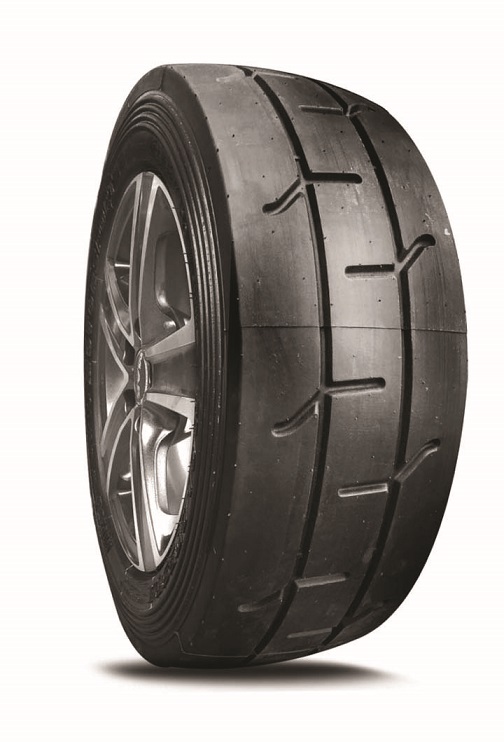 Besides racing tyres, the company also processes offroad tyres, car tyres for summer and winter, solid tyres etc. Since the 2000s, the company began producing racing and solid tyres while maintaining a focus on retreading truck tyres using casings sourced from customers and its own inventory. A fleet of five trucks collect used casings from clients within a 300 to 400 kilometre radius around Rome, which are retreaded and returned within a week.
Besides racing tyres, the company also processes offroad tyres, car tyres for summer and winter, solid tyres etc. Since the 2000s, the company began producing racing and solid tyres while maintaining a focus on retreading truck tyres using casings sourced from customers and its own inventory. A fleet of five trucks collect used casings from clients within a 300 to 400 kilometre radius around Rome, which are retreaded and returned within a week.
Matteo also emphasised that the company continues to invest in advanced machinery and technologies to ensure Matteo Malatesta high-quality retreaded tyres. It develops specialised compounds in its own lab and retreads approximately 200,000 tyres annually, catering to both B2B and B2C markets and exporting to 20 countries.
He also highlighted that the family business employs around 40 people, with the management remaining under the Malatesta family. Alongside the main operations, the company also produces bladders and envelopes for retreading facilities and new tyres through their subsidiary, MAE Industria Gomma. They also operate a tyre shop by the factory that sells both self-made products and new tyres from multiple brands, and this shop recently became a member of Michelin’s Euromaster network.
In terms of revenue, Matteo noted that truck tyres account for around 25–30 percent, while off-the-road and passenger car tyres make up approximately 40 percent. Race tyres contribute about 10 percent, as do solid tyres, with the remaining 10 percent comprising other types of tyres.
LOCAL INDUSTRY
Despite the challenges posed by competition from low-cost Asian manufacturers, particularly from countries like China, Thailand and Vietnam, the company has remained committed to retreading. Matteo noted that while retreaded tyres are environmentally beneficial, the price gap between new budget tyres and retreaded options often sways customers towards the former, limiting demand for retreads.
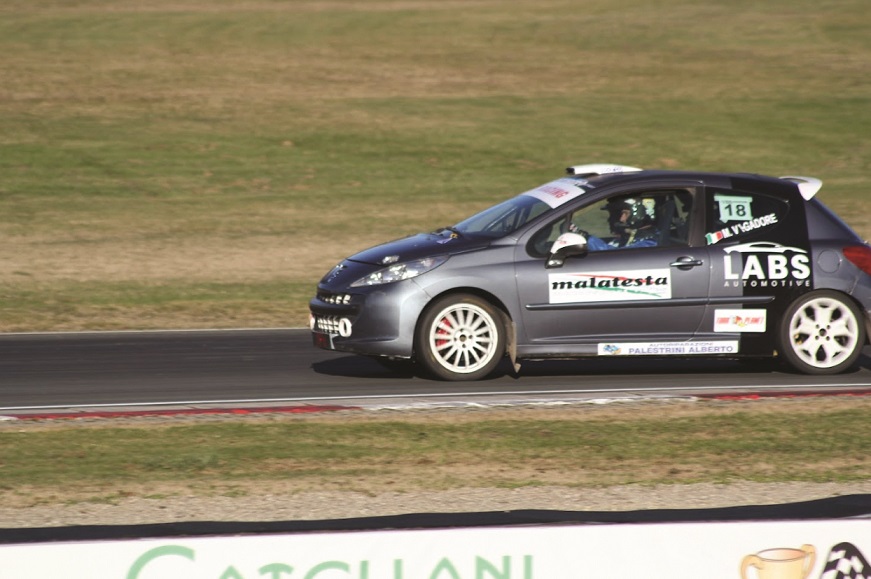
Despite the growing challenges and closures of many retreading factories over the years, the company remains dedicated to this segment, believing in its environmental and performance advantages.
Commenting on whether retreading is a dying industry in Italy, he noted, “Retreading is not a dying industry, but it’s not thriving either. It’s stable but slightly declining, which is concerning given the growing emphasis on environmental sustainability. While recycling plastics and paper has become mandatory, there’s no similar push for retreading tyres, even though retreaded tyres can perform as well as or better than budget tyres. It’s baffling that such a viable recycling method isn’t more supported or incentivised.”
“Our factory is currently operating at 30–40 percent of its capacity, meaning we could double our production if needed. However, finding enough quality casings is a challenge. In Europe, the system is inconsistent. For example, when purchasing new tyres, consumers pay a tax for tyre disposal. In countries like Spain and England, this has led to mandatory recycling policies where a portion of casings must be reused, making it easier to source materials for retreading. In contrast, Italy has regulations that hinder the reuse of casings. This makes it difficult to find casings suitable for retreading,” he added.
The company has invested in advanced technologies to improve the longevity and performance of retreaded tyres. It uses a shearographic machine to inspect casings before and after retreading and electrical detection systems to identify micro-holes. Additionally, laser-equipped machinery ensures precise casing measurements, while high-quality rubber and proprietary recipes are used for compound testing. The company also invests in rebalancing technologies ensuring superior performance and reliability.
He emphasised the need for greater efforts by European states and unions to inform the public and potentially legislate the mandatory use of retreaded tyres to support the industry.
FUTURE COURSE
Matteo mentioned that the company exports to 20 countries and its largest export markets are in Northern Europe, particularly Scandinavia and the Baltic countries. These regions are accustomed to using retreaded tyres and have a strong culture of recycling, making them ideal markets for the company’s products.
He also expressed a strong desire to expand the use of retreaded racing tyres into other types of motorsports. Furthermore, he highlighted that the company is supplying retreaded tyres to the Rome Fiumicino Airport. This collaboration began approximately two years ago after the airport, which had been exploring greener initiatives, reached out to the company. The airport representatives visited the company’s facility, became convinced of the quality and viability of retreaded tyres and started using them for its fleet of smaller cars.
Nonetheless, the executive stated that while this partnership marked progress, there is still a significant opportunity to expand retreaded tyre use at the airport. For example, many buses transporting passengers to planes still rely on low-cost Asian tyres rather than retreads. He expressed a desire to see a broader adoption of retreaded tyres in this sector and plans to continue advocating for their use at the airport.
Retreaded tyres exemplify the perfect balance of cost-effectiveness, performance and sustainability. By reusing casings and employing advanced technologies, it offers a reliable alternative to new tyres across diverse applications – from commercial vehicles to motorsports. Companies like Malatesta Tyres have demonstrated the durability and versatility of retreaded tyres, debunking myths about reliability. As environmental awareness grows, retreading emerges as a vital contributor to the circular economy, making it a crucial choice for eco-conscious industries and individuals alike.
KraussMaffei Technologies Appoints Dirk Musser As New Managing Director
- By TT News
- February 27, 2026

KraussMaffei Group is set to implement a leadership transition at its subsidiary, KraussMaffei Technologies, with a change at the board level. Jörg Stech, who has served as Chairman of the Board and global head of injection moulding, automation and additive manufacturing since 2023, will be departing on 31 March 2026 at his own request. He will be succeeded by Dirk Musser, the current Head of Group Transformation at the parent company, who has been appointed as the new Managing Director effective 1 April 2026. The leadership handover between Stech and Musser is already in progress, ensuring a seamless transition.
Stech’s tenure unfolded during a difficult economic period marked by financial losses and a contracting market. He responded with decisive measures aimed at margin enhancement and balance sheet improvement, which laid the groundwork for the company's long-term stability. Under his direction, the product lineup for injection moulding and automation was revitalised with the introduction of the LRXplus linear robot, the fully electric PX series and the MC7 control system, all launched in late 2025 alongside new artificial intelligence tools. He also launched a multi-year development initiative and pushed the company into new markets, such as aerospace and drone technology, by leveraging expertise in specialised processes like ColorForm. Through a focus on operational excellence, pricing discipline and capital efficiency, Stech guided the company to a significantly more resilient position compared to three years prior, despite the persistent downturn in injection moulding.
Musser brings to his new role extensive experience in transformation and finance. In his current capacity, he has already been closely involved with KraussMaffei Technologies, collaborating with its leadership to drive strategic initiatives and enhance operational performance. His qualifications include sharp analytical abilities, a strong grasp of industrial processes and a broad international perspective. An economist by training, Musser has accumulated over 20 years of leadership experience across various technology and industrial sectors. His background includes leading major transformation and turnaround projects at CRRC New Material Technologies, where he stabilised plant earnings in North America, as well as directing operational and financial restructurings during his time at Deloitte. He has also held roles with P&L responsibility, managing global supply chains and post-merger integrations at CRONIMET and has prior experience with automotive manufacturers including Daimler and Fujian Benz Automotive in China.
Alex Li, CEO, KraussMaffei Group, said, "Jörg Stech took on responsibility in a difficult situation, set clear priorities and launched decisive initiatives. The successful market launch of the LRXplus linear robot and the all-electric PX machine series, the consistent focus on profitability and the sustainable strengthening of our balance sheet are visible results of this work. We would like to express our sincere thanks to Jörg Stech for his leadership, integrity and team spirit. We value Dirk Musser as a leader who combines strategic clarity with operational excellence. In a short period of time, he has provided vital impetus for the transformation of the group and impresses with his analytical strength, decisiveness and deep understanding of our processes – not least through his successful collaboration with the managing directors of KraussMaffei Technologies. We are convinced that he will continue on this path with clarity and creative drive to successfully align KraussMaffei Technologies."
Stech said, "After many years in an environment full of technological, economic and geopolitical challenges, I look back with great gratitude on a time in which I was always surrounded by an exceptional workforce. Together, we achieved things that many initially thought were impossible. This cooperation, this willingness to push boundaries and create something new, was a joy for me. My special thanks go to all stakeholders in the company and, of course, to all employees. I leave with respect, gratitude and the conviction that this long-established company will continue to achieve great things in the future."
Musser said, "Together with my fellow managing directors Dr Frank Szimmat and Markus Bauer, I want to resolutely drive forward the further development of KraussMaffei Technologies. Our focus is on further expanding stability and performance and taking the necessary steps to successfully position the company in a dynamic market environment. I look forward to shaping this path together with our teams.”
Dario Marrafuschi Succeeds Mario Isola As Pirelli’s Head Of Motorsport
- By TT News
- February 27, 2026
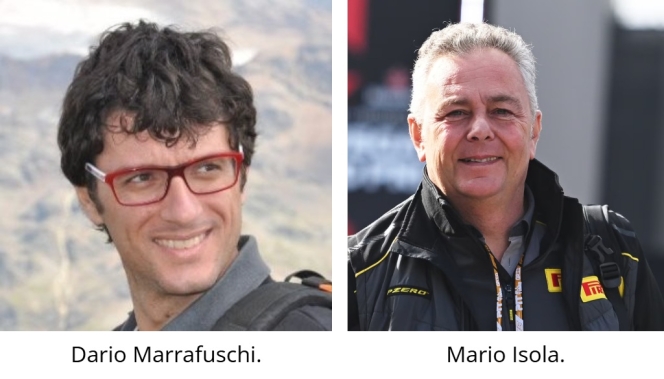
Italian tyre manufacturer Pirelli has announced that Dario Marrafuschi will become the Head of its Motorsport Business Unit, effective 1 March. He succeeds Mario Isola, who will remain with the company until 1 July to assist with the leadership transition.
Marrafuschi joined Pirelli in 2008 and has held positions within the Formula 1 Research and Development department. Most recently, he led the development of the company's road products.
He will report to Giovanni Tronchetti Provera, Executive Vice-President of Sustainability, New Mobility & Motorsport. The appointment comes as the company continues its role as the tyre supplier for various global motorsport categories.
Isola departs the company following a tenure that included the expansion of Pirelli’s motorsport operations. The company stated that Isola will pursue other professional opportunities following his departure in July.
Changing Tyre Dynamics In A Changing Car Market
- By Sharad Matade
- February 27, 2026
For Continental Tires India, the passenger vehicle market in India is entering a phase where scale and structure are finally aligning with its longstanding premium ambitions. Passenger vehicle sales reached a record 4.3 million units in 2024, expanding by 4–5 percent year on year, but it is the composition of that growth – rather than the headline volume – that is reshaping the company’s strategy. Utility vehicles now account for approximately 58 percent of total passenger vehicle sales, up sharply from about 51 percent the previous year, cementing SUVs and crossovers as the dominant force in the market.
This structural shift has direct consequences for tyre manufacturers operating at the upper end of the value spectrum. Larger vehicles bring higher kerb weights, bigger wheel diameters and greater expectations around refinement, safety and performance. For Continental, the change represents not merely an increase in addressable demand but a decisive move towards tyre categories where technology differentiation and pricing discipline can coexist.
Samir Gupta, Managing Director of Continental Tires India, calls this phase a turning point, not a temporary high. He says the surge in utility vehicles – driven by electrification and more premium cars – fundamentally changes the economics of the passenger tyre market in India.
“Let me clarify one thing first. The utility vehicle segment is no longer small. Last year, around 60 percent of passenger vehicles sold in India were utility vehicles, and including first-time buyers upgrading within this segment, the share goes beyond 65 percent,” Gupta says.

Industry data broadly supports this assessment. SUVs alone contributed close to three-fifths of all passenger vehicle sales in 2024, with compact utility vehicles accounting for a significant share of incremental volumes. The overall passenger vehicle market, at around 4.3 million units, has thus become structurally skewed towards larger formats – an inflection with long-term implications for tyre sizing, load ratings and product mix.
This shift shows in replacement demand. As vehicle footprints grow, rim diameters are increasing. “The market is clearly moving from smaller to bigger rim sizes. Demand for 17-inch and above tyres is rising sharply,” Gupta says. While these tyres are still a minority, their growth far outpaces the overall passenger tyre market.
Electrification is accelerating the shift. A substantial proportion of electric passenger vehicles sold in India today are SUVs, and Continental expects EVs to account for more than 50 percent of the passenger vehicle segment within five years. For tyre manufacturers, this creates new technical requirements – higher torque tolerance, lower rolling resistance and stringent noise control. “That creates a significant opportunity for us because our strengths lie in premium, high-performance tyres,” Gupta says.
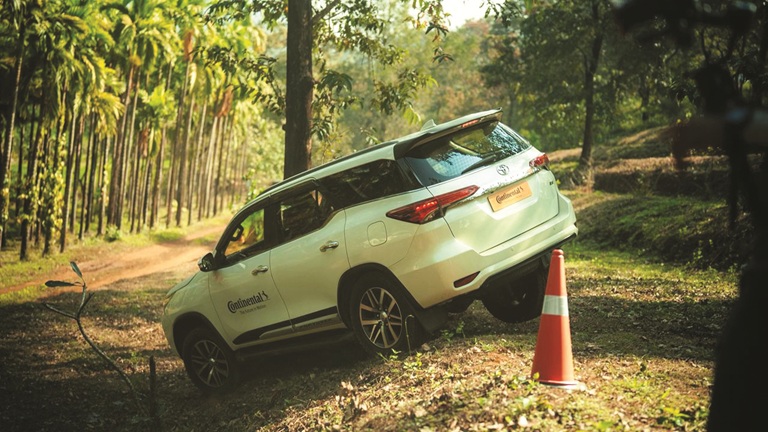
Despite these favourable structural trends, premium tyres have historically struggled to gain traction in India. For much of the past decade, the market remained intensely price-sensitive, with tyres treated largely as commoditised replacement items. Continental’s response, Gupta explains, has been consistent rather than tactical pricing. “Right from the beginning, we have focused on fair pricing. The idea is simple – if we can clearly differentiate on performance and consistently deliver on those promises, price recovery will follow,” he explains.
The broader environment is now becoming more supportive. As vehicle prices rise and consumers migrate towards larger, more sophisticated vehicles, willingness to spend on tyres that enhance safety, comfort and driving confidence is increasing. This trend is also evident at the top end of the market. Premium and luxury passenger vehicle sales reached approximately 51,500 units in 2024, up around 6 percent year on year and crossing the 50,000-unit threshold for the first time – a symbolic marker of premium consumption in India.
Gupta sees premiumisation extending beyond luxury vehicles. “Earlier, India was extremely price-sensitive, but that is changing in higher segments. Consumers are upgrading vehicles and are more willing to invest in tyres that enhance safety, comfort and confidence,” he says.
The intensification of competition, with global premium tyre brands expanding or re-entering India, is viewed as a positive development. “Competition is always good,” Gupta says. “It gives you room to grow and improve.” More importantly, he believes it will help reframe the market. “More premium players will help move the market away from being purely cost-driven to being value-driven,” he adds.
Replacement market dynamics reinforce this view. Of the roughly 32–33 million passenger tyres replaced annually in India, tyres sized 17 inches and above account for about 12–13 percent. While the overall replacement market grows at 5–6 percent per year, this high-diameter segment is expanding at over 20 percent annually, closely tracking the shift in new vehicle sales.
This sharper focus on passenger tyres also explains Continental’s decision to exit the truck and bus radial segment in India. Gupta stresses that the decision was strategic rather than operational. Continental entered the TBR market in 2014, invested significantly and received strong feedback on product performance.
However, the economics proved limiting. Gupta says, “TBR in India is largely a B2B, fit-for-purpose market. Even if you have the best tyre, willingness to pay remains limited because fleet operators are under constant margin pressure.” Although commercial tyres offer higher absolute margins per unit, they consume substantially more raw material. “One commercial tyre uses six to eight times the raw material of a car tyre. Percentage margins are actually higher in passenger tyres,” Gupta explains.
After reviewing its portfolio, Continental chose focus over breadth. Exiting TBR allows the company to concentrate capital, technology and management attention on passenger and light truck tyres, where differentiation is more readily monetised. Gupta rejects the idea that a narrower portfolio weakens the company’s position. Commercial and passenger tyre customers, he argues, are fundamentally different – one driven by procurement economics, the other by consumer perception and emotion.
Indian consumers, Gupta believes, are becoming more tyre-aware. “Premiumisation is happening across the vehicle industry, not just in tyres. As consumers move to larger and more premium cars, their expectations also rise,” he says. Where tyres were once treated as an afterthought, buyers increasingly recognise their role in braking, grip, noise and overall driving confidence.
This change is evident at the retail level. Continental now operates more than 200 brand stores across India, and feedback from retail partners suggests customers are more informed and more demanding. Availability remains critical. “There is no point launching premium tyres if customers cannot find them,” Gupta says.
To support future demand, Continental is investing around INR 1 billion at its Modipuram plant, with the focus squarely on passenger and light truck tyres. The expansion will extend manufacturing capability from the current 20-inch limit to 22–23 inches, aligning local production with emerging vehicle trends.
Localisation, Gupta argues, is about adaptation rather than compromise. Indian road conditions, climate and driving habits require specific tuning without diluting global performance standards. Education and availability remain the principal challenges.

The recent launch of the CrossContact A/T² in India reflects this strategy. Introduced during Continental’s Track Day at Dot Goa 4x4, the product positions India among the early global markets for the tyre. “The first thing you notice is noise – or the lack of it,” Gupta says. “You hear the air-conditioning, not the tyre.” Ride comfort, grip and consistency across terrains define its appeal. As Gupta puts it, “Jahan tak soch jaati hai, wahan tak yeh tyre kaam karta hai.”
Looking ahead, Continental remains largely insulated from shifts in original equipment strategies, such as the gradual removal of spare tyres. Improved carcass design and stronger sidewalls are reducing puncture risk, but the company’s primary focus remains the replacement market.
For Gupta, the question is no longer whether India is ready for premium tyres, but how effectively manufacturers execute. “The market is finally ready for premium tyres,” he concludes. With passenger vehicle sales at record levels, SUVs firmly dominant and premium consumption expanding, Continental believes it is well positioned to grow alongside India’s evolving mobility landscape.
Falken Tyre Europe GmbH Rebrands As DUNLOP Tyre Europe GmbH
- By TT News
- February 26, 2026

Falken Tyre Europe GmbH has officially transitioned to operating under the name DUNLOP Tyre Europe GmbH, following its formal registration with the Offenbach Local Court. This change signifies a pivotal development for the Sumitomo Rubber Industries subsidiary. The rebranding represents a calculated and essential move to establish a more formidable European footprint for the DUNLOP brand. Company leadership acknowledges that this evolution is built upon the considerable equity established by Falken, including its strong market recognition, unwavering product quality and the commitment of its personnel.
This strategic shift positions the organisation under the umbrella of a globally respected marque, with its future strategy firmly centred on expansion, pioneering advancements and ecological responsibility. A prominent symbol of this new chapter will be unveiled shortly, with the renaming of the DUNLOP City Tower in Offenbach. A formal ceremony will mark the occasion, featuring the presentation of the DUNLOP logo at the tower. The event is set to be attended by Offenbach's Lord Mayor, Dr Felix Schwenke, alongside the company’s managing directors, Hiroshi Hamada and Markus Bögner, and the newly enlarged DUNLOP team.
Markus Bögner, Managing Director and President, DUNLOP Tyre Europe GmbH, said, “The name change is an important milestone of which we can be very proud. It strengthens our identity and underlines that we are ready for the next steps. Our strong heritage with Falken is and remains part of our success, laying the foundations for DUNLOP’s future in Europe. Our thanks go to all our employees and partners who have supported and accompanied us on this journey.”







Comments (0)
ADD COMMENT